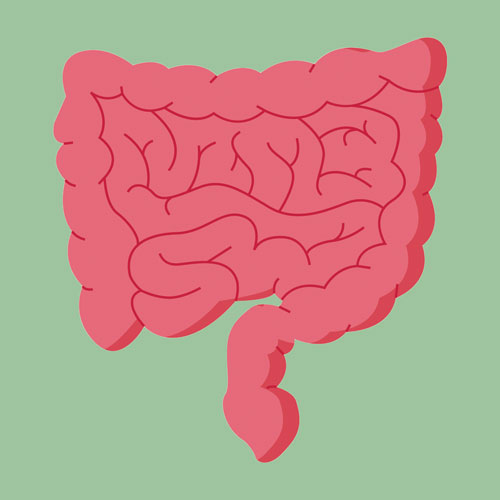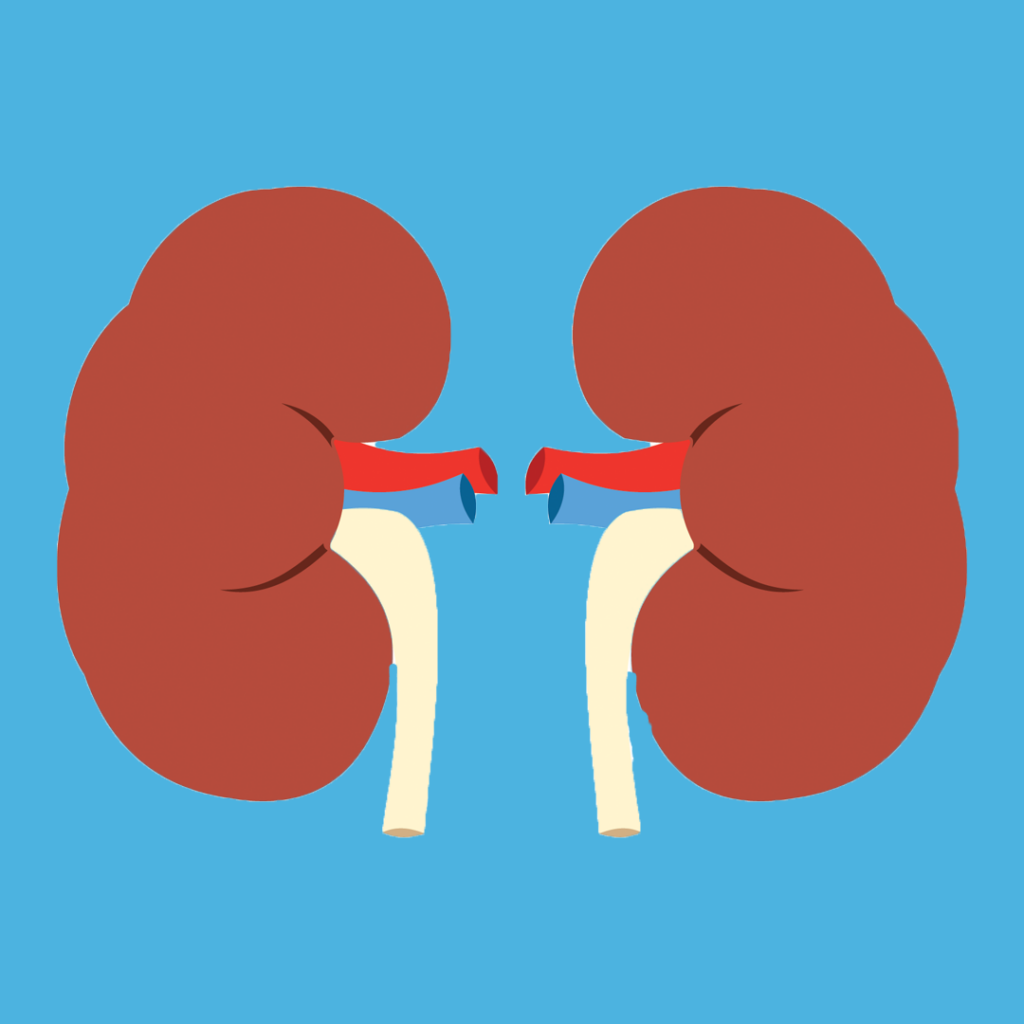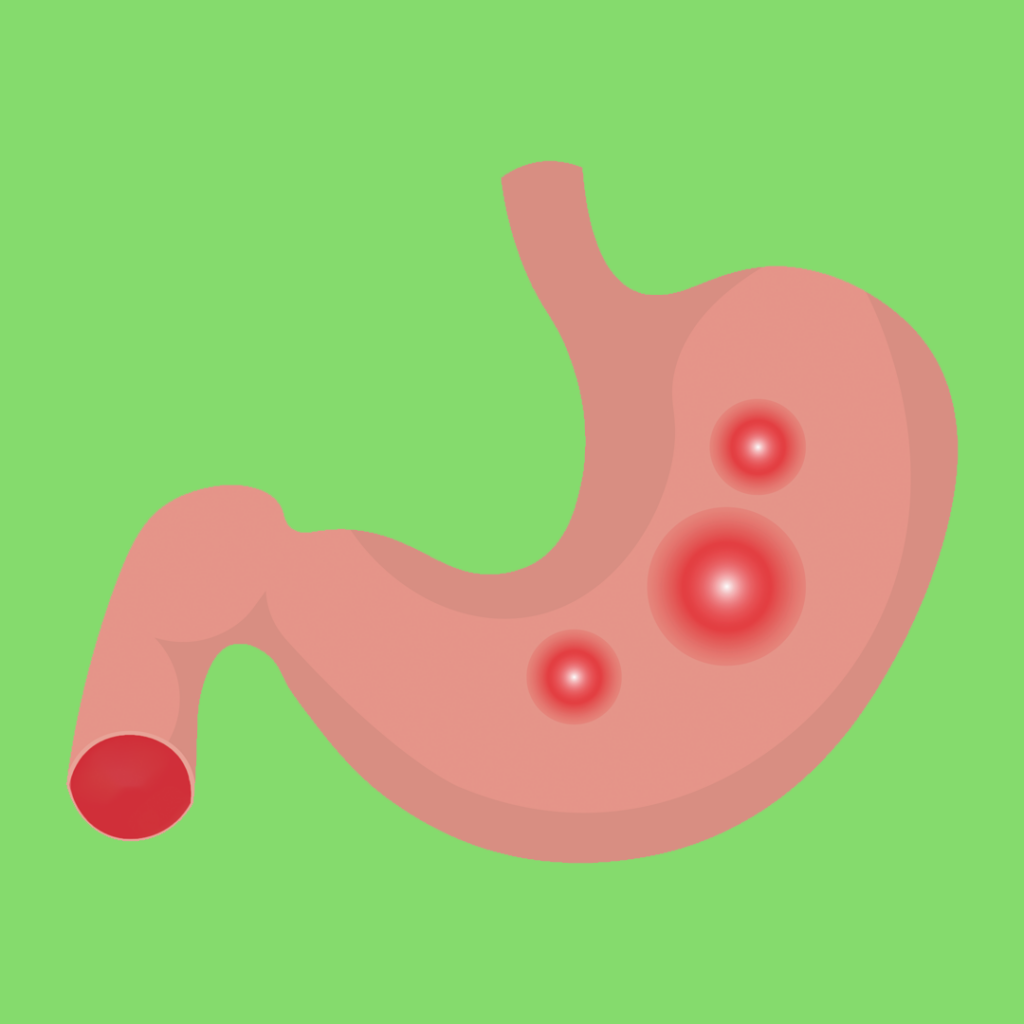Zinc and GI conditions

Questions answered in this article:
If you or someone you know has experienced a gastrointestinal (GI) condition like IBS or IBD, you know that the symptoms get in the way of everyday life – diarrhea, fatigue, abdominal cramping and bloating, unintended weight loss, and more.
While there is currently no cure for these conditions, there are treatments that can help ease symptoms and support the gut, and zinc is one of them. Zinc is known to support tissue regeneration and proper immune function. It also has anti-inflammatory superpowers!
Read on to learn how that impacts your gut health and how adding zinc to your daily routine can make a difference.
The lowdown on GI conditions
One of the most common GI condition is irritable bowel syndrome (IBS), with a rate of 18% in Canada. Another common digestive ailment, inflammatory bowel disease (IBD), is the umbrella term for two GI conditions: Crohn’s disease and ulcerative colitis (UC). Crohn’s causes inflammation and swelling in the digestive tissue, while UC can cause inflammation and ulcers throughout the digestive tract. Rates of IBD are rising every year—in fact, 1 in 140 Canadians lives with Crohn’s or colitis. The exact cause of IBD is unclear, but we know that stress, poor diet, smoking, heredity, and overuse of nonsteroidal anti-inflammatory drugs (NSAIDS) are all factors that can contribute to its development.
Zinc for IBS
If you have IBS, you know it’s as uncomfortable as it sounds. IBS is a range of symptoms related to digestive difficulties: abdominal cramps, fluctuation between constipation and diarrhea, flatulence, and bloating. Research shows that a leaky gut could be at the root of IBS struggles.
Zinc helps plug the gaps
Think of the contents of your bowels—undigested food particles, toxins, and trillions of bacteria—like a river. Your intestinal wall is made up of a network of tight cell junctions, kind of like a stone dam holding back the river and shielding the rest of the body from its contents. The innermost layer of your gut, called the mucosal layer, is a slippery lining that protects the intestinal wall. But when you have IBS or other digestive conditions, that mucus lining can wear away and the tight cell junctions of your intestinal wall can loosen, allowing proteins from food, bacteria and other toxins to slip through the gaps and enter your bloodstream. That causes all kinds of havoc in your body, including food sensitivities and immune reactions.
Scientists are trying to figure out the exact mechanism by which zinc helps, but studies clearly show that zinc supplements protect and improve the mucosal layer, and support the health of your entire digestive tract.
Say goodbye to bloating and gas
IBS tends to bring with it an unpleasant gassy, bloated feeling. That’s a result of the carbohydrates in your intestinal tract not breaking down properly. They sit in your gut for longer than they should, and ferment, creating gases like methane and hydrogen.
So what breaks down carbs in your gut? A digestive enzyme called disaccharidase. And why isn’t it doing its job? It might be because you have a zinc deficiency, which reduces the activity of disaccharidase by 30% to 50%. That’s a lot of bloating you could avoid!
A zinc deficiency also inhibits other important digestive enzymes like proteases and pepsin (which break down protein), and amylase (which breaks down carbs).
Another reason to tune up your digestion with zinc: Not having enough digestive enzymes can impact bowel transit time—the time it takes between eating food and feeling the call of nature. That’s why IBS patients often report either constipation or diarrhea.
Your brain and your gut are connected
The exact cause of IBS is unknown, but we do know that there’s a mental health component to this condition. Two-thirds of IBS patients also suffer from anxiety and depression.
High anxiety levels switch on your sympathetic nervous system, or your “fight or flight” response—a cascade of physiological reactions that suddenly give you increased strength, speed and alertness. This is a very cool evolutionary response that helped our prehistoric ancestors fight or flee from danger, but that same response kicks in today when you’re anxious. The problem is, it also shuts down or hinders certain bodily functions like digestion (not considered a priority when escaping a sabre-toothed tiger!).
For the sake of your gut and your brain, it’s a good idea to reduce your stress levels, and here’s where zinc comes in.
Zinc helps modulate gamma aminobutyric acid (GABA), the brain’s most important inhibitory neurotransmitter (think of it like a dial that turns down the nervous activity in your brain). That’s a good thing—GABA prevents symptoms of anxiety and stimulates the parasympathetic nervous system, or your “rest and digest” response (the opposite of fight or flight), when your body is relaxed and recovering from stress.
So zinc reduces your stress levels, and the longer you remain in rest and digest mode, the better your digestion. It’s no wonder then, that a zinc deficiency is a factor in IBS.
GABA also plays a (not-yet-understood) role in regulating gastrointestinal motility, or the movement of food through the digestive tract. Clearly, it’s a critical neurotransmitter, and zinc helps make it more available in your body.
Zinc for IBD
Those with IBD can tell you that it comes with a long list of not-so-fun symptoms, just like IBS and other digestive disorders. What makes IBD different is the presence of chronic swelling or inflammation in the intestines.
Have you ever thought of why we experience these symptoms and how it leads to inflammation in the gut? Well, inflammation is a natural response from our immune system when it thinks we’re sick and need healing. You may have heard that 70% of your immune system is located in your gut, and it’s true! The innermost mucus layer of the intestine contains health-promoting bacteria, and is your first line of defence against harmful microbes and toxins. When this mucus layer breaks down, so does your immunity.
In goes zinc, out goes inflammation
IBD causes our immune system to respond incorrectly to environmental triggers, such as viruses or bacteria, leaving us with excess inflammation, and all the uncomfortable symptoms that come with it.
Inflammation from IBD goes on to increase the number of pro-inflammatory cytokines (proteins like TNF-α and IL-10) in your gut, which damage the intestinal wall. Our gut wall is semi-permeable, meaning that it can control which substances come in and out in order to absorb nutrients into our bloodstream. So, this increase in pro-inflammatory cytokines damages the semi-permeability, resulting in leaky gut syndrome, a hallmark of IBD and IBS.
However, supplementing with zinc decreases the number of these cytokines, and the gut inflammation they trigger.
Zinc strengthens immunity
There’s another problem with inflammation. It increases the number of metallothioneins (MTs), a small group of proteins that help keep zinc at steady levels in your body so it can be used for your health. But with chronic inflammation from IBD, the explosion of MTs can isolate zinc and make it unavailable to do its job. Studies show that supplementing with zinc decreases MTs, which frees up more zinc and improves immune response in the gut.
Basically, gut inflammation from IBD reduces zinc levels and causes all kinds of issues, but supplementing with zinc reduces inflammation and improves gut immunity.
One study of data collected over 26 years from two large cohorts of women (170,776 in total) with either Crohn’s or UC. They found that the intake of zinc was inversely correlated with the risk of IBD. Other human studies suggest that zinc deficiency may be a factor in IBD-caused gut inflammation.
Zinc has many benefits for our gut health, which ultimately extends to other parts of our bodies including immunity. Next time you’re visiting your local health food store, try picking up a zinc supplement to help heal your gut!








